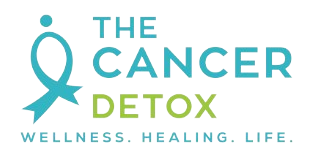Want to slow prostate cancer tumor growth?
In a previous post, I discussed how men who adopted a vegan diet and exercise could help reverse the signs of prostate cancer. That study included men who were vegan for 1 year. After 1 year all the men who went vegan saw their PSA levels stay the same, while men who did not adopt a vegan diet had an increase in their PSA. As previously mentioned, PSA (prostate specific antigen) is a marker in the blood that indicates the presence of prostate cancer.
So what if the men ate vegan for more than one year? Well, Dr. Dean Ornish extended the study for two years and the results are still promising for men on active surveillance and want to adopt a vegan lifestyle:
How can 2 years of eating vegan slow down prostate cancer?
- After 2 years on a vegan diet, only 5% (2 of the 43 men) saw their prostate cancer progress enough that they required medical treatment (either surgery, such as a prostatectomy, radiation, or hormone treatment).
- 27% of men that did not eat a vegan diet had to receive medical treatment due to the prostate cancer progressing
- None of the men who were on the vegan diet had PSA levels reach higher than 10 ng/mL, however 3 men in the group that did not eat vegan did have PSA levels go higher than 10 (once PSA levels go higher than 10, the prostate cancer is now considered intermediate).
Takeaway
After 2 years on a vegan diet, most of these men avoided standard medical treatment typically needed for prostate cancer. This indicates that the prostate cancer did not progress and become more advanced.
Reference: Frattaroli J, et al. Clinical events in prostate cancer lifestyle trial: results from two years of follow-up. Urology. 2008:72;1319
Conquer Cancer │Thrive│Prevent. Bedside Manners provides health advocacy and education so cancer patients get good bedside manners and healthcare. We focus on 3 things: 1) educating patients on science-backed natural ways to improve their quality of life; 2) empowering patients and survivors with a “survivorship game-plan”; and 3) ensuring patients receive quality healthcare that improves their chances of survival.
Want to learn more about us? Instantly download our mini-guide:
7 Ways to Naturally Conquer and Prevent Cancer



